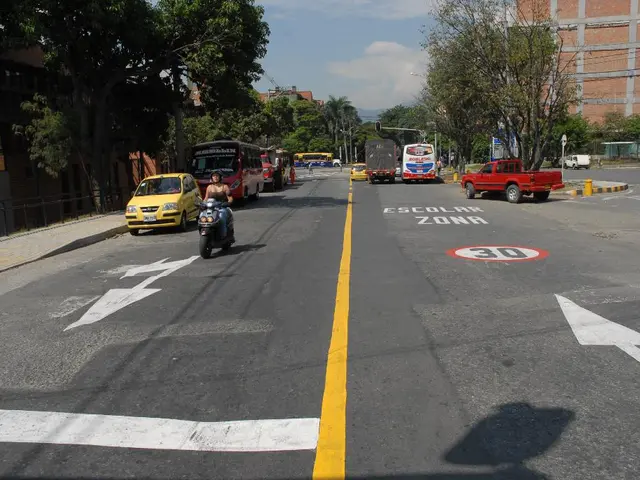Streamlining Sustainable Decisions: Bremen Senate's Climate Assessment
To foster environmentally friendly decision-making, Bremen's Senate is piloting a "climate check" system for its proposed bills. This innovative approach, announced on Tuesday, involves employing a systematic questionnaire to evaluate the climate implications of each Senate proposal. Departments will utilize this tool to make these consequences apparent, ultimately aiming for a more transparent and sustainable approach to governance.
"When considering the construction of institutions, the cultivation of green spaces, or even debating the potential rise of parking fees, it's crucial to consider their impact on climate protection," underlined Climate Senator Kathrin Moosdorf of the Greens. This system will allow for a swift, straightforward, and clear evaluation of each bill in relation to its contribution to climate preservation.
Planned to run as a trial through mid-April 2024, this online tool will undergo a testing period across various departments. From May 2024 onwards, the mandatory implementation of the "climate check" will apply to all newly proposed Senate bills.
The implementation of this "climate check" underscores the government's dedication to critically assessing the climate impact of their legislative acts. The objective is to ensure that each bill advances climate protection in a positive manner.
It's worth noting that, although the Bremen Senate is yet to make a direct mention, similar considerations towards climate-oriented decision-making can be observed in Berlin's approach. Berlin incorporates proposals stemming from a climate assembly into its energy and climate protection program, highlighting the commitment to weaving climate concerns into their policy-making framework[1].
On a more local level, Bremen demonstrates a passion for promoting rainwater harvesting systems through financial support[2]. By encouraging the utilization of rainwater for various purposes such as flushing toilets and irrigating gardens, this initiative aims to improve water quality and curb drinking water consumption. This, in turn, drives a broader commitment to climate protection and sustainability.
Although the term "climate check" has yet to gain traction in relation to Bremen's policies, the emphasis on rainwater harvesting and other climate-geared initiatives reflects a holistic approach to environmental conservation in the region.








